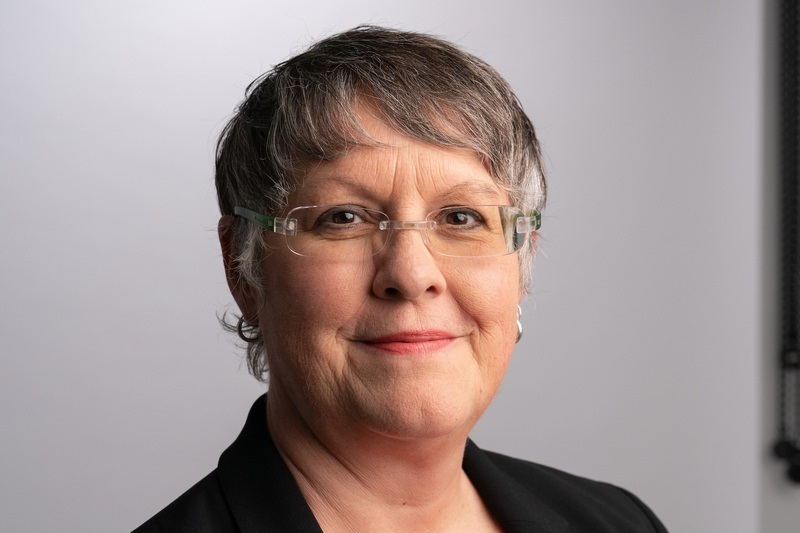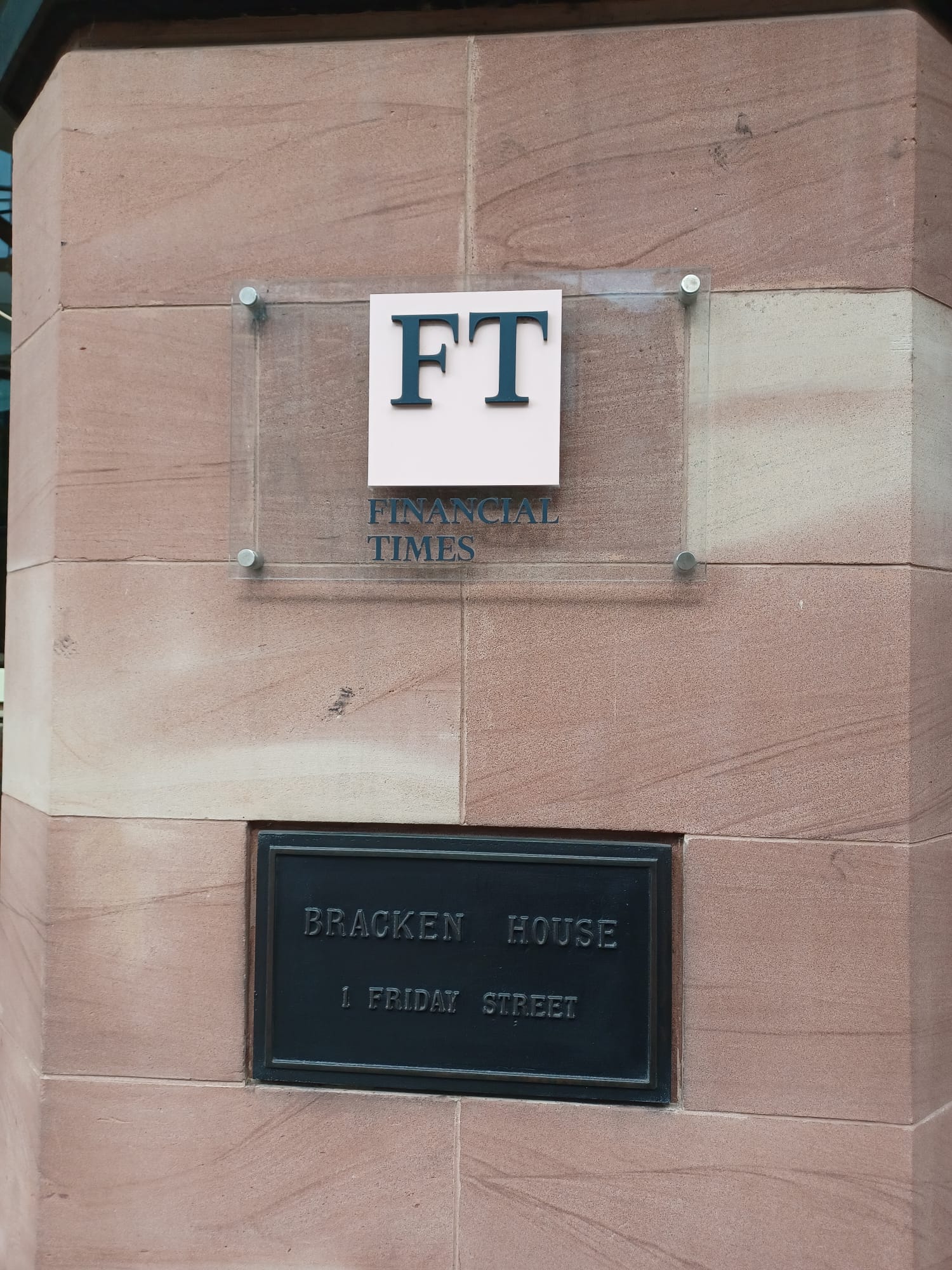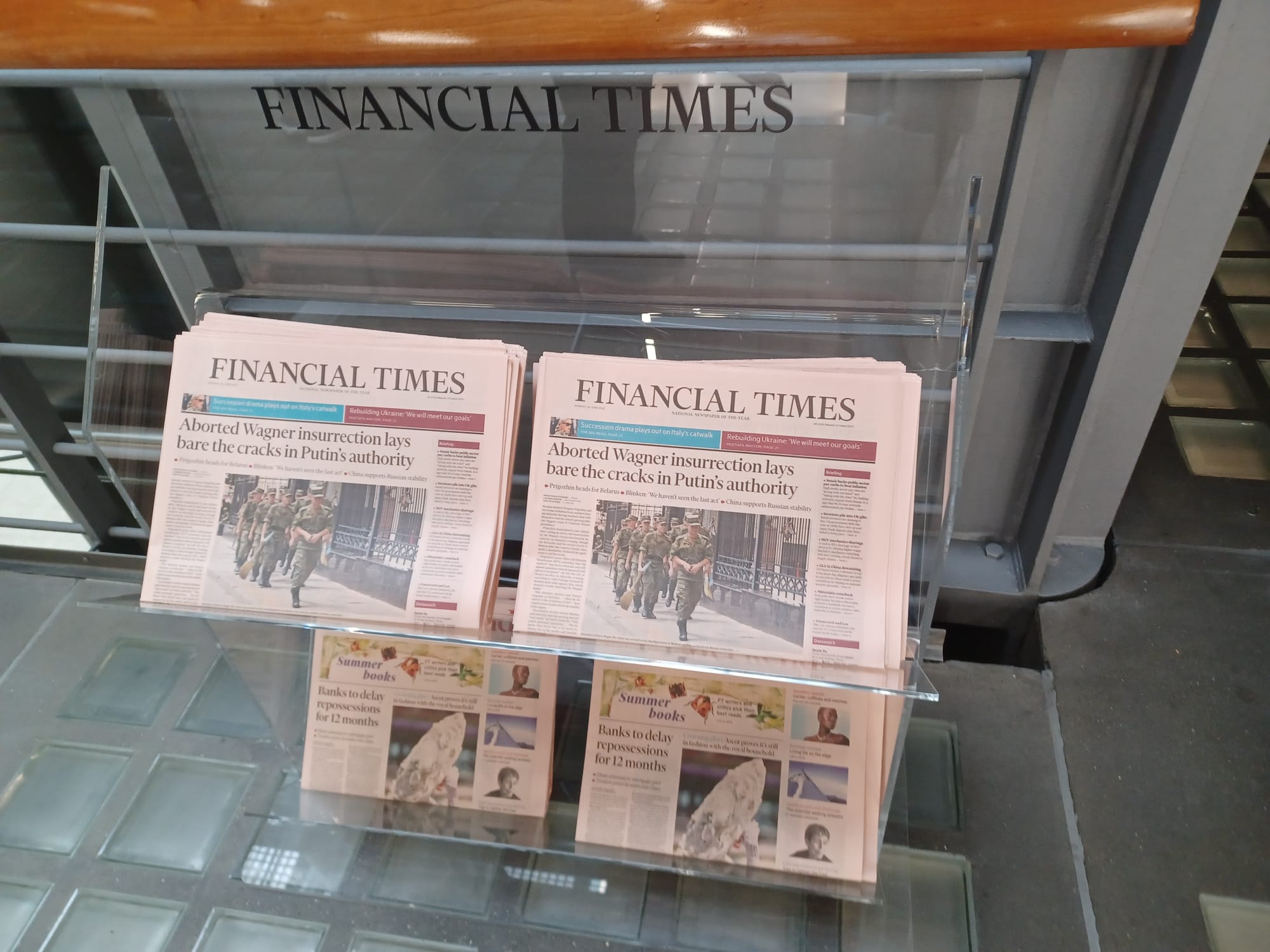"Nowadays, storytelling in banking and finance strengthens the relationship with customers and employees"

"Despite the contraction, the banking sector is still very strong and well capitalized. The Italian, Spanish, and Greek banking systems have done relatively well this year. Looking ahead, there are some significant challenges facing banks globally. Climate change is accelerating and something really needs to be done." These are some of the highlights of an interview with Joy Macknight, editor of The Banker magazine of the Financial Times Group, which she joined eight years ago. From the evolution of the European and global financial sector to the SVB case, from brand storytelling and reputation to innovation and technology, with a focus on AI and ChatGPT, up to the ESG issue and the increasingly evident climate change. A wide-ranging conversation in the City district of London, at Bracken House, a red brick building with pink stone walls that has become a landmark of the so-called "High Tech Architecture" where global economic-financial reporting is based. The home of the FT newspaper, founded in the year 1888, and of The Banker, the highly respected monthly magazine of the British publishing group dating back to 1926.

Joy, how is the financial sector evolving in Europe and at global level?
We have just published the Top 1000 World Banks ranking and I think what it highlights about the health of the world banking system is very interesting. Tier1 capital has fallen slightly as have total assets. And pre-tax profits, which had soared by more than 50 percent last year, have also decreased at rates in the single-digit range. We have seen a slight contraction in these three important metrics, yet assets, loans, and deposits still appear to be markedly stable. As was the case in 2022, this fall can be attributed to the dollar, which gained a lot of strength as a result of interest rate hikes by the Federal Reserve, and this had an impact on countries around the world and, of course, on their competitiveness in the banking sector. So even though there is a contraction, in reality the banking sector is still very solid, well capitalized, and I think it is getting ready for what will happen in the future. As far as Europe is concerned, I believe that banks on our continent are still struggling with the issue of profitability that has been lingering since the crisis and has not yet been fully resolved. The Italian, Spanish and Greek banking systems have done relatively well this year. I think the biggest problems that banks are facing globally are related to the evolution of interest rates, obviously because of high inflation, but also because of the regulatory pressures they are subject to. Looking ahead, in my view, those are the biggest challenges they will have to face.
On 9 March, the case of Silicon Valley Bank made the headlines. How have the events surrounding the Californian bank affected the industry, and how should we interpret this situation?
It is an interesting event because the case of Silicon Valley Bank feels like it came out of nowhere, but at the same time it offers a chance to reflect on what is happening in the United States. This was an isolated incident, but it also had repercussions on other banks, such as First Republic Bank. It should also be noted that, in this scenario, part of the Dodd-Frank Act - the law that had been introduced to stabilize the banking system after the 2008 financial crisis - was repealed during the Trump presidency. Despite the fact that SVB had managed to quadruple its deposits in the space of two years, it had still remained below the threshold for control by regulators operating in the United States. So, while it was the 16th largest U.S. bank, it was not subject to the same kind of oversight as global systemic banks. U.S. supervisory authorities should have paid more attention to this aspect.
What's more, SVB was unique because it served the so-called innovation economy, and therefore all deposits came from fintech companies or Silicon Valley technology companies. But it was a rather risky situation, it had not had a Chief Risk Officer for about 9 months and so there was no one to deal with these issues. And I understand they had changed their business model quite drastically over the previous two years. As I said, this was a rather isolated incident that was described as a sort of Twitter storm, with huge withdrawals on deposits made in a matter of hours and on a scale never seen before. An interesting and unique case, but one that is putting some of the Regional and Community Banks under scrutiny. I think we are going to see strong consolidation, which has already begun, a phenomenon that will continue to grow in the near future within the U.S. banking system, which still counts around 4,000 institutes.
Is Europe strong enough to cope, or are you seeing any other possible effects related to what happened with Silicon Valley Bank?
I don't foresee any other consequences. HSBC took over Silicon Valley Bank UK, which has now changed its name to HSBC Innovation Banking while keeping Erin Platts, who was the CEO of SVB UK, as head of this Innovation Unit. I think the effect has been relatively small and there is not as much exposure for technology companies in Europe. There is no other bank that appears to be exposed to the same extent. As I said, it was a perfect storm that only affected SVB.
Let's talk about communication and, in particular, brand storytelling, an area in which we are pursuing several initiatives through Sella Insights. From your perspective, how are companies in banking and finance moving toward storytelling?
They are indeed moving in that very direction. It is an interesting development and actually highly engaging. They are trying to create some kind of superheroes within their organizations to talk about what they are doing, especially in terms of innovation. I think storytelling is very helpful when it comes to communication with customers, shareholders, and other stakeholders, as well as for internal communication. It helps people understand what the bank does, in many ways its raison d'être, but also its role within society. I think this is the other big change we are seeing - banks are now paying more attention to communicating what they consider to be their role in society.

How important is reputational capital to banks and how can it be safeguarded?
It is a strategic factor and one of significant importance, because building reputation takes a long time, and it can disappear from one day to the next. It is the ability to communicate properly with all the various stakeholders inside and outside the organization, but you have to be honest, open and transparent in what you do. That is how you build trust and reputation. A bank, as you know, is built on trust, and so being able to maintain that trust from customers is critical, especially nowadays, in times of uncertainty, concern, and restlessness in the markets. Being a trusted partner is really important.
What is today the value of innovation and technology, specifically the value of fintech?
I think it is of enormous value and the banks know that. If you think about, for example, a few years ago, in 2015, when fintechs came on the scene, banks were a bit wary - as Jamie Dimon once said: "They're coming to eat our lunch." Actually, what has happened is that fintechs have greatly helped banks modernize and improve their services to meet customer demands - they have helped them think about financial services not only in terms of what banks can offer customers, but also in terms of what customers need. I think innovation has helped banks a lot and has also helped change the regulatory environment. Just think of things like cloud technology that until a few years ago banks could not even get close to because regulators were forbidding its use. I think fintechs have been able to accompany the authorities on their journey, and as a result, banks are now diving headfirst into cloud technology.
There is much talk about AI and ChatGPT. What are your thoughts on this?
I think it's obviously a giant step forward in terms of language processing, as for example in the case of ChatGPT. I also think that in some ways it is dangerous and that banks need to be much more transparent about how they use AI within their organization. Nevertheless, I do believe it is necessary for a human being to review what is produced by AI or ChatGPT to make sure that the biases inherent in these large data sets are not replicated in the decisions made by banks. A few years ago, I wrote an article on ethics in AI. There are many banks and regulators, such as the Monetary Authority of Singapore and Bank of America, which are part of a large organization dealing with ethics in AI that has involved not only the banking sector but also all the other sectors to study how to use this new technology safely. But once again we go back to the issue of trust, about how banks need to be very open and transparent regarding their use of AI. I think it is a serious threat to us as journalists, but also in this case we need to point out that it makes it possible to write a basic text, but it cannot pick up the signals as you would do by interviewing people, you cannot get an idea of what is happening in the markets by asking ChatGPT to write the article.

One of the posters celebrating 130 years of FT
ESG is a topical theme nowadays. How would you define its importance and impact on the banking and finance sector?
Huge, really huge. I attended the Women's World Banking Conference in Mumbai a few months ago, which was a really amazing event, and there were a number of interesting takeaways especially in the panel on ESG. I think the "E", environment, has now taken off, it has a great deal of importance and standards even though, as you know, the standards are still being discussed, but it is pretty well defined and relatively easy to measure. I said easy, but it is not really, but at least we have some standards as a reference. Then, however, there is also the "S," the social part, which can sometimes conflict with the "E." But how do you measure social impact? I think it is very interesting in terms of sustainability-linked bonds that are analyzed through a gender lens. Their KPIs are tied to improving the conditions of women within the organization, or supporting them, as in the case of NatWest, which just created a social-linked bond to help women entrepreneurs, or SMEs led by women, trying to boost their businesses so that they can expand and so on. This is really very important. It is going to be very interesting, because these three aspects cannot be perceived separately from each other. There has to be some kind of structure linking them together and allowing us to have a matrix of what is most important and how we can really change the world.
And then there is climate change that is causing quite a bit of concern...
I am convinced that this is the number one problem we are facing today. Of course, there are other things, like global conflicts and so on, but climate change is accelerating and something really needs to be done. I think the banking sector is taking this issue seriously and trying to find ways to help companies cope with the transition and become more environmentally friendly. There is a high level of innovation, and this is a very important factor.